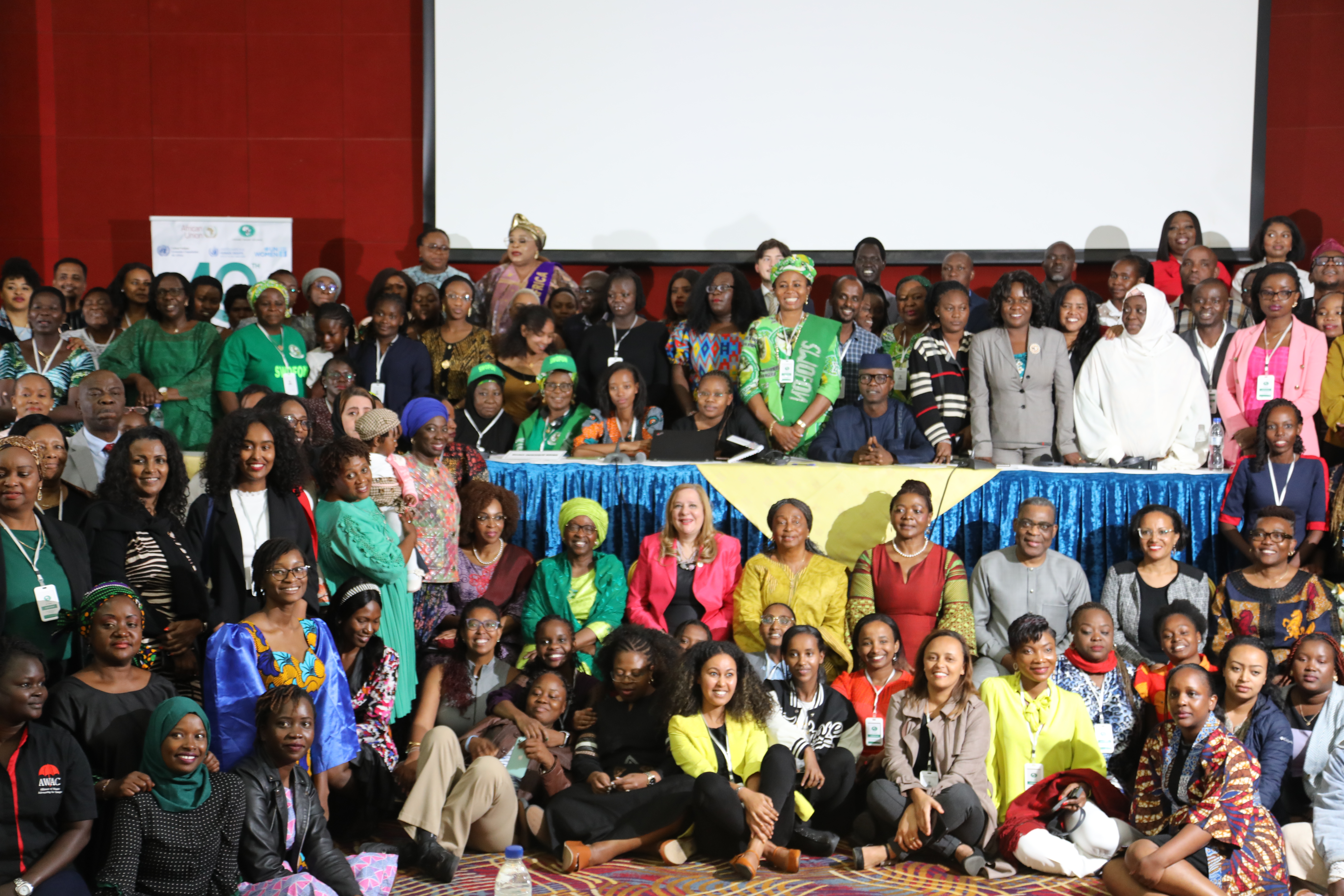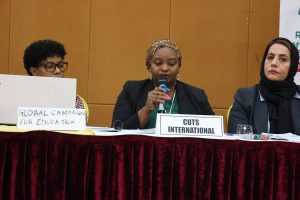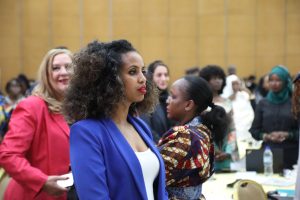
Transforming Feminist Futures through African Education Finance
Introduction
Imagine a future where education across Africa is not just “weatherproof,” but a vibrant ecosystem nurturing every girl’s potential. Forget crumbling classrooms and outdated curriculums. Picture African schools transformed into fortresses of resilience, where girls not only survive shocks like pandemics or economic turmoil, but emerge empowered, their minds ablaze with knowledge and confidence. This isn’t a pipe dream, it’s the audacious vision championed by African feminists, who hold the key to unlocking this transformative learning revolution. They’re not tinkering with existing models; they’re wielding a torch, illuminating a path paved with “Pan-African Feminist Alternatives” to Gender Transformative Education. Here, resilience isn’t just about bouncing back, it’s about building back better – stronger, fairer, and more inclusive, with gender equality at its core. It’s about dismantling the walls of inequality and empowering girls to become the architects of their own destinies.
The Status of Education in Africa through a Feminist Lens

Across Africa, a broken financing system shackles education, silencing the potential of women and girls. While universal calls like the Sustainable Development Goal 4 advocate for countries to allocate 4% of their GDP to education, reality paints a bleak picture. African nations fall short, averaging a mere 4.1%, riddled with regional disparities. Even those meeting the minimum fail to deliver, their paltry investments leaving classrooms crumbling and aspirations unfulfilled. This funding deficit disproportionately hurts women and girls. They face steeper barriers to accessing quality education, battling cultural biases, family pressures, and lack of infrastructure. Inadequate budgets exacerbate these challenges, creating a vicious cycle of exclusion and marginalization. This is not just a numbers game; it’s a matter of economic justice and human rights.
Denying girls education cripples their future, limiting their earning potential, perpetuating poverty, and silencing their voices in society. The fight for gender equality cannot be won without dismantling this rigged system. We need radical solutions, not recycled bandages. We demand accountability from governments, urging them to prioritize education as an investment in their people’s future, particularly their daughters. We call for innovative financing mechanisms that empower local communities and challenge the status quo. This is not just about allocating more funds; it’s about redistributing power. We need feminist budgeting that centres the needs of marginalized groups, ensures transparency, and holds decision-makers accountable.
Why Education in Africa is Starved by Neoliberalism and Poisoned by Debt
The education crisis plaguing Africa isn’t a mere funding gap – it’s a meticulously orchestrated heist, fuelled by the pernicious tentacles of neoliberalism and the lingering ghosts of colonialism. While billions vanish into an abyss of illicit financial flows and rigged trade and tax deals, the dreams of young girls are left to gather dust in classrooms starved of resources. The UNCTAD report of 2020 stands as a stark indictment, revealing the annual haemorrhage of $88.6 billion through illicit channels – a modern-day plunder that exposes the ugly truth: Africa’s educational woes are not a product of scarcity, but of systemic injustice.
Colonial-era trade, tax and investment agreements, havens for stolen wealth, and corporate tax dodging are gaping wounds, draining the lifeblood from African economies and leave education budgets gasping for breath. The burden of debt, a desperate measure borne from financial strangulation, further shackles progress, creating a vicious cycle of poverty and underdevelopment. The education system itself stands as a monument to this neocolonial grip, warped by private interests that churn out graduates tailored to serve the needs of foreign factories, not the aspirations of their own communities.
This is not just an economic injustice, it’s a feminist outrage. Women and girls, disproportionately burdened by poverty and limited access, bear the brunt of this systemic failure. Their right to education, a cornerstone of economic empowerment and social change, is held hostage by a rigged system that profits from their marginalization.
A pan African feminist approach

In the pursuit of decolonizing education to foster the economic empowerment of African women, it becomes paramount to engage in a rigorous analysis and overhaul of the existing educational paradigm. This necessitates a transformation towards inclusivity, representation, and alignment with the distinctive needs and aspirations of African women and girls. A fundamental aspect of this transformation lies in the realm of finance, where African governments must fortify their fiscal policies to ensure unequivocal commitment to gender-transformative education initiatives across the continent. Such governmental endeavours should entail a holistic re-evaluation of fiscal policy frameworks, prioritizing the advancement of indigenous interests over the imperatives of capitalism.
Central to this endeavour is the establishment and enforcement of progressive and gender-responsive taxation systems. This involves identifying and rectifying points of revenue leakage, curtailing illicit financial outflows through anti-corruption measures, regulating tax incentives and exemptions, and revising tax legislation to eliminate loopholes exploited by corporate entities to evade tax obligations. Furthermore, equitable taxation of the wealthy is imperative to uphold fairness in the distribution of tax burdens.
Moreover, prudent management of national debt is essential, emphasizing transparency throughout the entire process of loan negotiation, acquisition, and utilization, thereby ensuring public accountability for borrowed funds. Such transparency not only empowers citizens to monitor governmental expenditure but also holds administrations accountable in instances of misappropriation.
Governments must also establish inclusive platforms for citizens’ engagement, guaranteeing equal participation and representation for women and girls in fiscal policymaking processes. Additionally, affirmative action measures should be implemented to allocate resources towards both formal and informal education systems, acknowledging the pivotal role of education in propelling socioeconomic development and empowering marginalized demographics.
Collectively, African governments should advocate for the reform of the global financial architecture, urging for the establishment of a global tax authority and a multilateral debt negotiation mechanism under the auspices of the United Nations. These reforms would ensure equitable representation for African nations, enabling them to articulate their concerns and safeguard their interests effectively. By asserting their taxation rights and negotiating favourable debt terms, African countries can generate sustainable revenues and manage debt levels proficiently.
Moreover, governments should reclaim their role in education provision across the continent, preventing its commodification and tailoring educational systems to the specific needs of women and girls throughout Africa.
In conclusion, it is evident that a comprehensive approach grounded in Pan-African feminist principles is indispensable. By addressing systemic issues pertaining to financing, governance, and inclusivity, African nations can pave the way for transformative educational opportunities that empower women and girls across the continent.
The aforementioned was authored by Grace Namugambe and peer reviewed by Imali Ngusale. For more information on feminist approach to fiscal justice and updates transforming Feminist Futures through African Education email Grace Namugambe via g.namugambe@femnet.or.ke






